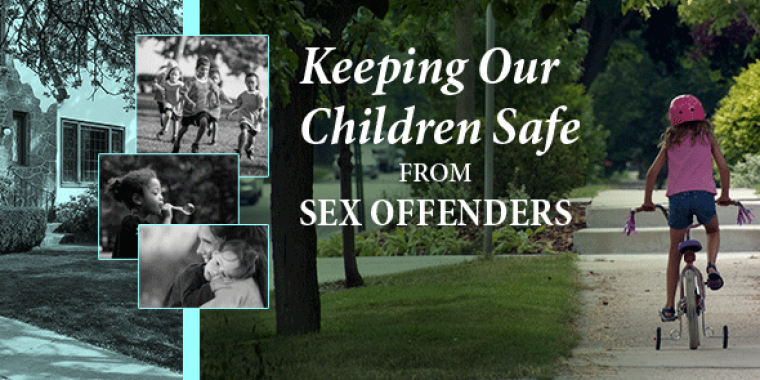
Senate Passes Bills to Close Dangerous Loopholes in Sex Offender Laws
Patrick M. Gallivan
February 27, 2015
-
ISSUE:
- Crime
- Courts
- Child Molestation

Senator Patrick M. Gallivan (R-C-I, Elma) announces the Senate has passed nine bills to close dangerous loopholes in the laws protecting children and communities from sexual predators. The measures would address critical issues raised by a recent Court of Appeals ruling that prevents local governments from enacting laws restricting sex offenders, as well as the safety concerns highlighted in a recent Senate Coalition joint investigation and report. In “Keeping Our Children Safe From Sex Offenders,” the Senate Coalition uncovered numerous instances of convicted pedophiles living within 1,000 feet of grade schools with pre-kindergarten programs or stand-alone Universal Pre-K programs.
The legislation would: allow municipalities to enact local laws that strengthen sex offender restrictions; prohibit registered sex offenders from living close to their victims or from entering child care facilities; close loopholes that allow sex offenders to reside close to pre-K and kindergarten programs; prevent sex offenders from living close to elementary or high schools; decrease the potential time a sex offender could be released into the community before risk levels are determined; and increase public disclosure about the residencies and workplaces of sex offenders.
“It’s clear that additional steps are needed to better protect our children and our communities from dangerous sexual predators. These bills close loopholes in existing laws, allow local officials to respond to the needs of their community and address the safety concerns raised by the Senate Coalition’s investigation,” Gallivan said.
The Senate report came on the heels of a New York State Court of Appeals ruling which sided with a sex offender who completed his parole and moved within 500 feet of a Nassau County school. While his move was in compliance with state law, it was against local law, and the court ruled that only the state is authorized to create residency restrictions for sex offenders.
Bill S3925, which Gallivan co-sponsored, would address the Court of Appeals ruling by enabling municipalities to create local laws relating to sex offenders. Communities would be able to put additional restrictions in place so long as they are not less restrictive than state laws.
Bill S2950, which Gallivan also co-sponsored, prohibits a Level 2 or 3 sex offender from residing within 1,500 feet of their victim’s residence. In Putnam County, a Level 3 sex offender was released from prison in 2011 and allowed to live next door to one of his victims, which caused significant emotional distress.
The Senate also passed the following bills:
Bill S1520 addresses concerns raised by the Senate Coalition’s joint investigation by prohibiting certain convicted sex offenders from knowingly being within 1,000 feet of any place where pre-kindergarten or kindergarten instruction is provided. The measure also requires the state Department of Corrections and Community Supervision to receive regular updates of all elementary and secondary school locations to ensure residency restrictions for Level 2 and 3 sex offenders are being followed.
Bill S22 requires schools to distribute information about Level 2 and 3 sex offenders living in a school district to parents of the students. This would give parents an extra assurance that each household has the valuable information that could protect their children predators.
Bill S712 reduces the amount of time it takes to make a risk level determination for convicted
sex offenders so that they are not placed on probation, discharged, or otherwise released into the community without the necessary protections and registration requirements in place.
Bill S2269 prevents convicted Level 1, 2, or 3 sex offenders from residing within 1,000 feet of a building used exclusively as an elementary or high school.
Bill S2981 fixes a loophole that allows sex offenders to spend significant amounts of time at a residence other than the primary one registered with the state. This measure amends the definition of a residence and requires offenders to comply with registration requirements to include any location at which the offender spends more than two days a week.
Bill S3811 increases the information available to the public when a convicted sex offender is in contact with the community. Level 2 and 3 sex offenders would be required to disclose their employment in addition to their residence on the state’s registry.
Bill S3926 protects young children and their caretakers by prohibiting Level 3 sex offenders from entering child care facilities as a condition of their sentencing.
The bills have been sent to the Assembly.
-30-
Share this Article or Press Release
Newsroom
Go to NewsroomSenator Gallivan's Votes for June 5, 2024
June 10, 2024



